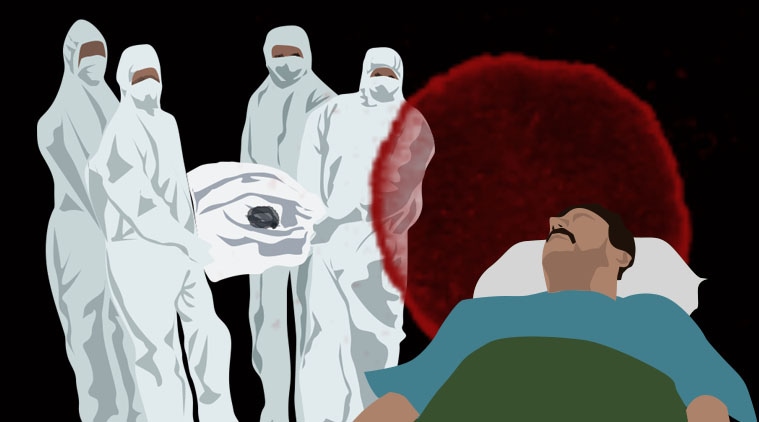 Now, scientists at NIV have urged that Japanese Encephalitis virus should also be considered for diagnosis while screening for Nipah virus infection. (Representational Image)
Now, scientists at NIV have urged that Japanese Encephalitis virus should also be considered for diagnosis while screening for Nipah virus infection. (Representational Image)
While Nipah virus infection has claimed 16 lives in Kerala, scientists at the Manipal Virus Research Centre (MVRC) have also detected a few cases of Japanese Encephalitis (JE). Three cases of JE have also been detected from the suspected Nipah virus infection samples that were sent to the National Institute of Virology (NIV) in Pune.
Now, scientists at NIV have urged that Japanese Encephalitis virus should also be considered for diagnosis while screening for Nipah virus infection. The MVRC lab was the first one to identify Nipah virus infection in Kozhikode on May 18. There is no vaccine for the virus, which can cause encephalitis or inflammation of the brain. No confirmed cases of Nipah virus infection have been found outside Kerala till now, said scientists.
A total of 18 cases have been found to be positive for Nipah virus infection, of which 16 have succumbed to the disease. From May 18 till date, 200 samples with symptoms of encephalitis have been tested at the MCVR – Grade 1 virus research and diagnostic laboratory, said Dr G Arun Kumar, head of the lab. “We have also found some cases of influenza and Japanese Encephalitis,” he said.
Scientists at NIV, meanwhile, said they were receiving samples with encephalitis symptoms from Karnataka, Kolkata, Goa and Maharashtra and even some northern states. While they have found no cases of Nipah virus infection from these states, NIV scientists have detected three cases of Japanese Encephalitis. “We have alerted the state health departments to take adequate measures,” they said.
The virus that causes JE is transmitted by the Culex species of mosquitoes that breed in flooded rice fields as well as in water-logged areas of urban regions.